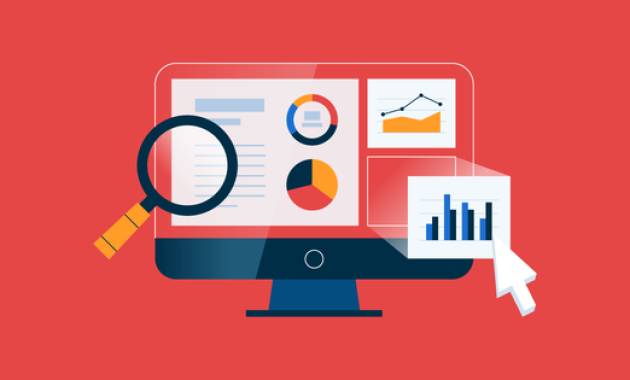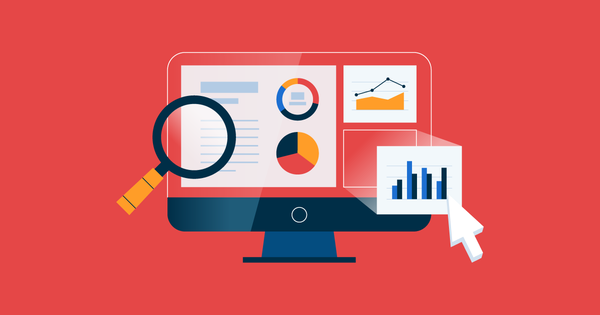
Self-Service Business Intelligence Software: A Paradigm Shift
The modern business landscape is awash in data. Companies are collecting more information than ever before, from customer interactions and sales figures to operational metrics and market trends. However, raw data is often useless. It needs to be analyzed, interpreted, and transformed into actionable insights. This is where self-service business intelligence (BI) software comes in. This type of software is revolutionizing how businesses approach data analysis, shifting the power from IT departments to individual users. The goal? To dramatically cut complexity and empower data-driven decision-making.
This article will delve into the world of self-service business intelligence software. It will explore its benefits, key features, and how it can transform your organization. We’ll examine how these tools can help you overcome the challenges of data complexity and unlock the true potential of your data assets.
The Evolution of Business Intelligence
Traditional business intelligence relied heavily on IT specialists and data analysts. These experts would extract data, build reports, and create dashboards for business users. This process was often time-consuming, expensive, and inflexible. Changes to reports required IT intervention, creating bottlenecks and hindering timely decision-making. The rise of self-service business intelligence software has changed this dynamic.
Self-service BI software empowers business users with the tools they need to analyze data directly. This reduces reliance on IT and accelerates the insights-to-action cycle. Users can create their own reports, dashboards, and visualizations, enabling them to explore data and uncover hidden patterns and trends. The result? Faster, more informed decisions and a more agile business.
Key Benefits of Self-Service BI Software
Adopting self-service business intelligence software offers a multitude of advantages. These benefits extend across various departments and levels within an organization.
- Faster Time to Insights: Users can access and analyze data in real-time, eliminating the delays associated with traditional BI processes.
- Improved Decision-Making: Data-driven insights empower users to make more informed and strategic decisions.
- Increased Agility: Businesses can adapt quickly to changing market conditions and customer demands.
- Reduced Costs: Self-service BI can reduce reliance on IT specialists for report generation and data analysis.
- Enhanced Collaboration: Users can easily share reports, dashboards, and insights with colleagues.
- Democratization of Data: Data access is extended beyond IT and data analysts, empowering a wider range of users.
Core Features of Self-Service BI Tools
Self-service business intelligence software offers a range of features designed to make data analysis accessible and intuitive. These features are crucial for empowering business users to explore their data effectively.
- Data Connectivity: The ability to connect to various data sources, including databases, spreadsheets, cloud services, and more.
- Data Preparation: Tools for cleaning, transforming, and shaping data for analysis. This includes data cleansing, data blending, and data modeling.
- Data Visualization: A wide range of visualization options, such as charts, graphs, maps, and dashboards, to present data in an easily understandable format.
- Interactive Dashboards: Customizable dashboards that allow users to explore data and drill down into specific details.
- Reporting and Analytics: Tools for creating reports, performing ad-hoc analysis, and generating insights.
- Collaboration Features: Features that enable users to share reports, dashboards, and insights with colleagues.
- Mobile Access: The ability to access reports and dashboards on mobile devices.
- AI-Powered Insights: Some tools offer AI-powered features, such as automated insights and predictive analytics.
Selecting the Right Self-Service BI Software
Choosing the right self-service business intelligence software is crucial for success. The best choice depends on your specific needs and requirements. Consider the following factors when evaluating different solutions:
- Ease of Use: The software should be intuitive and easy to learn, even for users with limited technical skills.
- Data Connectivity: Ensure the software can connect to all your relevant data sources.
- Features: Evaluate the features offered and determine if they meet your specific needs.
- Scalability: The software should be able to handle your current data volume and scale as your business grows.
- Security: Ensure the software offers robust security features to protect your data.
- Cost: Consider the pricing model and ensure it fits within your budget.
- Support and Training: Look for a vendor that offers good support and training resources.
Research different vendors and compare their offerings. Request demos and free trials to test the software and see if it meets your needs. Consider the long-term implications of your choice. The right self-service business intelligence software can be a game-changer.
Use Cases: Real-World Applications of Self-Service BI
Self-service business intelligence software is used across various industries and departments. Here are some examples of how businesses are leveraging these tools:
- Sales: Sales teams can track sales performance, identify top-performing products, and analyze customer behavior.
- Marketing: Marketing teams can analyze campaign performance, track website traffic, and understand customer engagement.
- Finance: Finance teams can monitor financial performance, track expenses, and generate financial reports.
- Human Resources: HR teams can analyze employee data, track performance, and identify areas for improvement.
- Operations: Operations teams can monitor operational efficiency, track key performance indicators (KPIs), and identify bottlenecks.
- Healthcare: Healthcare providers can analyze patient data, track treatment outcomes, and improve patient care.
- Retail: Retailers can analyze sales data, track inventory levels, and optimize store layouts.
These are just a few examples. The applications of self-service business intelligence software are vast and continue to expand as businesses become more data-driven.
Cutting Complexity: The Core Benefit
One of the primary goals of self-service business intelligence software is to cut complexity. Traditional BI processes often involve complex data extraction, transformation, and loading (ETL) procedures. This can be time-consuming and require specialized skills. Self-service BI software simplifies these processes. It provides user-friendly interfaces and automated features that make it easier for business users to access, analyze, and visualize data. This reduction in complexity allows users to focus on what matters most: making data-driven decisions.
By reducing complexity, self-service BI software empowers users to become more self-sufficient. They can explore data, generate insights, and make informed decisions without relying on IT or data analysts. This leads to faster decision-making, improved agility, and a more data-driven culture. The software enables businesses to leverage their data assets more effectively.
Future Trends in Self-Service BI
The self-service business intelligence software market is constantly evolving. Several trends are shaping the future of this technology:
- Artificial Intelligence (AI) and Machine Learning (ML): AI and ML are being integrated into self-service BI software to automate insights generation, predict future trends, and personalize user experiences.
- Cloud-Based BI: Cloud-based BI solutions are becoming increasingly popular, offering greater scalability, flexibility, and cost-effectiveness.
- Mobile BI: Mobile BI is becoming more prevalent, allowing users to access and analyze data on their mobile devices.
- Data Governance: As data volumes grow, data governance becomes increasingly important. BI software vendors are focusing on data governance features to ensure data quality and security.
- Embedded BI: Embedding BI capabilities into other applications and workflows is becoming more common, making data accessible to users within their existing tools.
These trends indicate that self-service business intelligence software will continue to evolve. It will become more powerful, user-friendly, and integrated into the business. The goal? To cut complexity and empower data-driven decisions.
Conclusion: Embracing the Power of Self-Service BI
Self-service business intelligence software is transforming the way businesses approach data analysis. By empowering business users with the tools they need to analyze data directly, these solutions cut complexity, accelerate insights, and drive better decisions. The benefits of adopting this kind of software are clear. They include faster time to insights, improved decision-making, and reduced costs. As businesses become more data-driven, the importance of self-service business intelligence software will only continue to grow. Embrace the power of self-service BI and unlock the full potential of your data. It is an investment in your future.
[See also: Related Article Titles]

